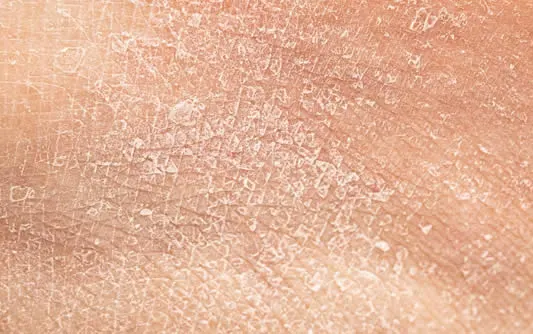Understanding Excessively Dry Skin
Dry skin often accompanies aging. By the age of 60, nearly everyone experiences some degree of dryness. Additionally, certain medications, cancer treatments, and dialysis can exacerbate dry skin.
Causes of Excessively Dry Skin
Excessive dryness occurs when the skin loses water too rapidly. Several factors contribute to this:
- Use of deodorant soaps and harsh cleaning products, which strip oils and fats from the skin.
- Long, hot showers, which can further dry out the skin.
- Residing in cold, dry environments, which exacerbates skin dryness.
While mild dryness can often be managed with lifestyle changes and moisturizing, severe dryness persists when the skin cannot retain moisture or heal itself. Factors such as age, certain medications, and underlying health conditions can contribute to excessively dry skin.
Who is at Risk?
Several groups are particularly susceptible to excessively dry skin:
-
- Individuals aged middle or older, as sebum production decreases with age.
- People with black, brown, or fair skin, who are more prone to very dry skin.
- Those taking medications such as statins and diuretics, which can cause dryness as a side effect.
If you experience severely dry skin, dermatologists advise seeking treatment to prevent worsening symptoms. Failure to address the condition may lead to permanent side effects, including persistent itching, food allergies, increased skin irritation, and a heightened risk of serious skin infections.
Schedule a appointment with Dermatologist in Granada Hills.


